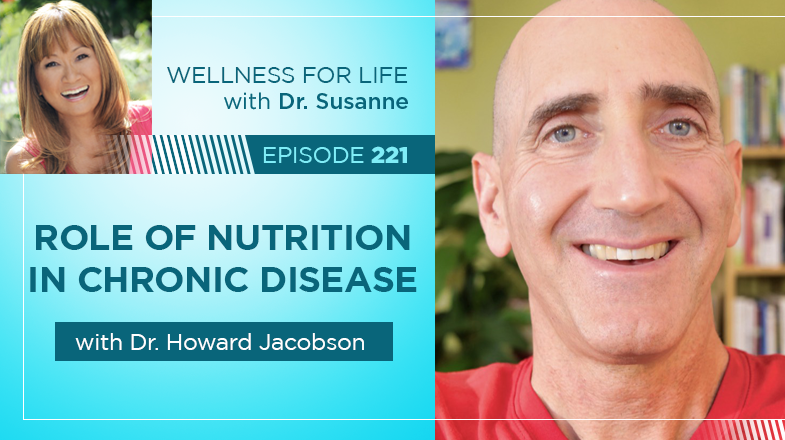


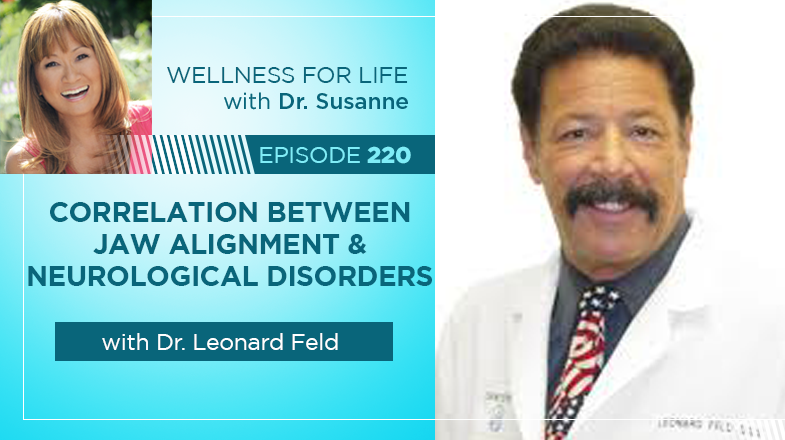
In my last blog post, I talked about a little known health issue called Pyrrole Disorder which tends to be genetic and often results in severe zinc and vitamin B6 deficiencies.
Both my son Cody and I tested positive for this disorder, so we supplement with zinc and B6 to avoid any issues like anxiety from popping up, which can be caused by zinc and B6 deficiencies.
Anxiety comes in many forms and can have many causes and contributing factors, like chronic stress, trauma, nutrient deficiencies (especially zinc and B6), and lack of sleep. But there’s hope, because anxiety is easily treated at home with some key lifestyle strategies.
So today I’m sharing my 5 best tips and strategies for preventing and treating any form of anxiety naturally.
Aim to incorporate at least 1 or 2 of these strategies into your daily routine. First thing in the morning is easy to remember and helps to set you up for a fantastic (and anxiety-free) day!
Practice Meditation – You’ve probably heard all about the endless benefits of practicing meditation, things like increased productivity, better focus, better sleep, and less stress. And let’s be sure to include anti-anxiety in that list, because a regular meditation practice is one of the best ways to prevent and manage any type of anxiety.
If you’re new to meditation, it may be helpful to start with some guided meditation audios, videos, or in-person classes in until you get comfortable practicing on your own, or you can continue practicing guided meditation if you prefer. It’s just as effective either way, as long as you practice daily!
I created a set of three guided meditation audios for my patients and students – one for morning, one for afternoon and one for evening.
The morning and afternoon guided meditations are to optimize your energy level, mental focus and resiliency throughout the day. The evening one is to activate the parasympathetic system at bedtime, to wind down and go into a deep sleep state. Most people who use the evening meditation fall asleep quickly while they’re still listening to it!
Meditation really helps to clear your thoughts and feelings, calming the monkey mind and soothing away tension, stress or anxiety. I highly recommend making meditation a priority in your life and experiencing the difference for yourself.
Tickle Your Vagus Nerve With Laughter – Laughter’s many benefits have been proven in multiple studies, and decreasing anxiety is definitely one of the best perks of having a good chuckle.

Can you believe that the average child laughs about 200-300 times PER DAY!? But the average adult? A wimpy handful of times per day. So we’re missing out on an incredibly fun and easy way to be healthier and happier here!
One of the reasons that laughing frequently can help to prevent and reduce anxiety is because it stimulates our vagus nerve in the back of our throat and diaphragm, which also connects to all of our critical organs (including the brain, gut, heart, lungs and liver!)
Vagal nerve stimulation restores the parasympathetic tone, and helps to ensure proper functioning of each organ, so it’s super important to have optimal vagal nerve function.
But unfortunately, due to our modern lifestyles with chronic stress, lack of sleep, and poor nutrition, most of us are running on high alert throughout the day, and ends up creating an imbalance between the sympathetic (fight/flight) and parasympathetic (relax/rest) nervous system. When this happens, a slew of unpleasant symptoms and diseases can easily follow.
Luckily, science has discovered some simple ways to help tone up your vagus nerve, and laughter is at the top of that list for me! Laughing also increases blood flow and feel-good endorphins in the brain. Check out my recent laughing exercise video on Instagram here and try it for yourself today and every day!
Supplement with Glycine – Glycine is an amino acid found in collagen that acts as a balm for the central nervous system. It can help with generalized, low-level anxiety and can also be used to relieve panic attacks in real time when they strike.
Glycine may just be my #1 favorite anti-anxiety supplement of all time! I recommend starting with 500 mg twice daily and then increase the dose up to 2-3,000 mg per day.
GABA/L-Theanine Topical Cream – The natural inhibitor and anxiety reliever neurotransmitter GABA (gamma amino-butyric acid) and the amino acid L-Theanine found in green tea, also help immensely in soothing a frazzled brain and nervous system.
Supplementing with GABA can even help to stop a panic attack in its tracks. I personally use this This topical cream by Xymogen before going on stage or TV show, as it sure cuts my fears down quickly! This product is sold only to physicians, so if it’s something you want to try, just email us at help@drsusanne.com.
Vitamin B6 and Zinc Supplements – Deficiencies in Zinc and Vitamin B6 is a common condition and also found in people who have pyroluria, a genetic condition as discussed in my previous blog. And a common symptom of these deficiencies is a feeling of overwhelm and anxiety. But taking these two micronutrients together as supplements can easily correct any deficiencies and prevent or eliminate anxiety.
Start with 15mg twice a day for zinc and 20 mg twice a day for B6.
There’s no need to suffer needlessly with anxiety any longer. Start to work a few of these strategies into your daily life and within a few days to a few weeks, you’ll be amazed at the difference that simple natural interventions can make!
To your most vibrant life,
Dr. Susanne
P.S. Follow me on Instagram for my ultimate wellness tips and strategies delivered on the regular, along with my travels and adventures!
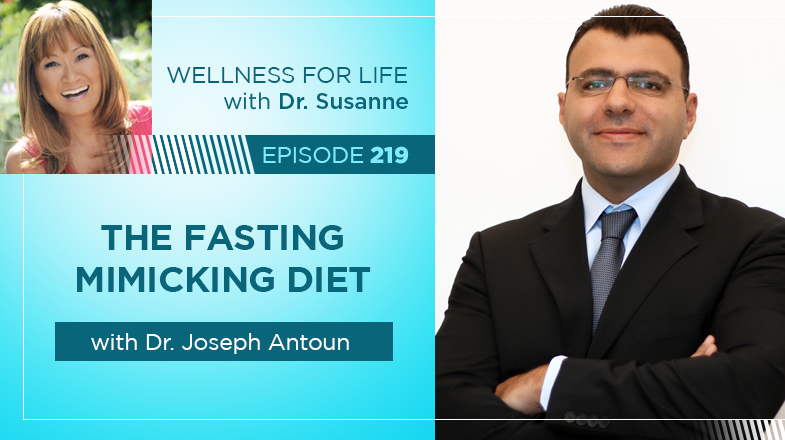
Dr. Joseph Antoun is the CEO and Chairman of the Board of L-Nutra, the leading fasting and fasting mimicking R&D and commercialization company. Dr. Antoun is also Chairman of the Board at the Global Healthspan Policy Institute (GHPI), Director of Health Policy at University of Chicago and fmr. Editor-in-Chief of The Journal of Health Systems Reform.
Dr. Antoun’s work focuses on enhancing Public Health and Human Healthspan through advancing technologies that promote healthy aging and advocating for health policy reforms that support R&D, regulatory processes and increasing access to innovative Healthspan technologies.
Dr. Antoun has completed his studies in Health Policy at Harvard University, in Public Health at Johns Hopkins University, and in Medicine and Biological Sciences at Saint Joseph University.
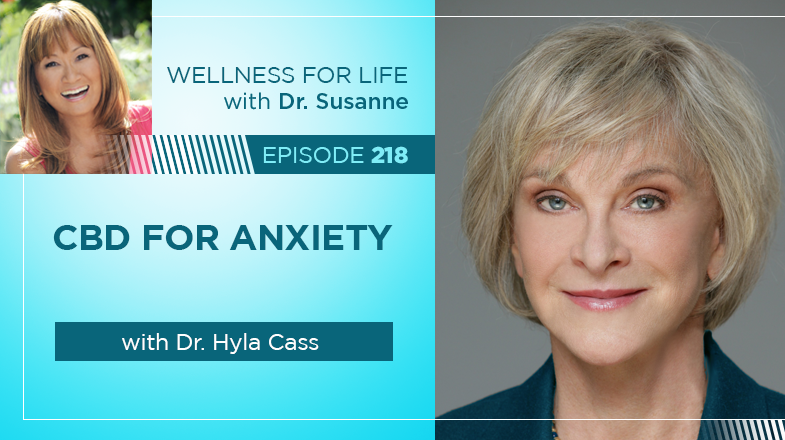
Hyla Cass, MD is a physician, psychiatrist and frequently quoted expert in the area of natural approaches to mental and physical health. She combines the best of leading-edge natural medicine with the modern science in her clinical practice, writings, lectures, and nationwide media appearances– on radio, TV (including The Dr. Oz Show, The View, & E-Entertainment), and in various local and national publications, including the Huffington Post. She helps individuals withdraw from psychiatric medications and substances of abuse, or to avoid medication altogether, through the use of specific natural supplements. She has created a unique, high quality line of nutritional supplements, and is the author of several popular books including Supplement Your Prescription, Natural Highs, 8 Weeks to Vibrant Health, The Amazing Itty Bitty Guide to Cannabis, and The Addicted Brain and How to Break Free. A well-known international speaker she lectures to the public as well as her medical colleagues on these same topics
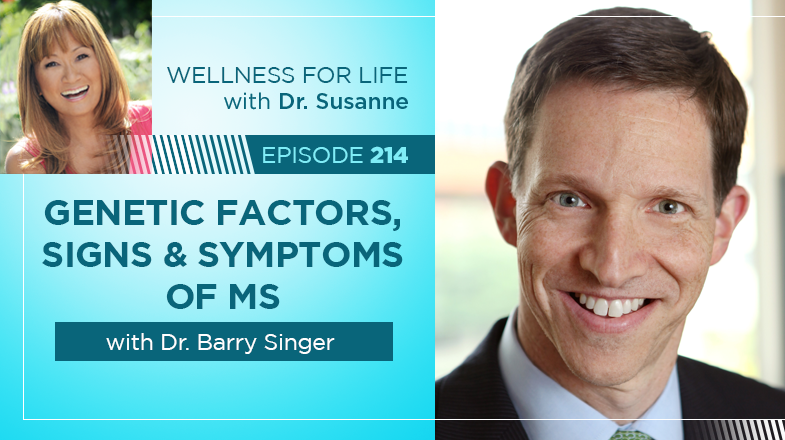
Barry Singer, M.D. is the director and founder of The MS Center for Innovations in Care, one of the largest comprehensive care multiple sclerosis centers in Midwest. The center is on the campus of Missouri Baptist Medical Center in St. Louis. Dr. Singer has been in the BJC Medical Group since 1999 and remains on staff at Barnes-Jewish Hospital in St. Louis where he practiced full-time from 1999 to 2008. He is an Associate Professor of Clinical Neurology at Washington University in St. Louis. Dr. Singer graduated college from Duke University in 1988 and medical school from Columbia University in 1992. His neurology residency was at Cornell-New York Hospital and his two-year multiple sclerosis fellowship was at the National Institutes of Health.
Dr. Singer has been an investigator in more than 25 clinical trials focused on new multiple sclerosis treatment options since 1994. He continues to publish in the field of multiple sclerosis, present at global scientific meetings and serves as course director for national continuing medical education programs. As a leader in multiple sclerosis and patient advocate, he lectures on MS throughout the U.S. and globally. In 2016, he was appointed to the Board of Directors of the Multiple Sclerosis Association of America and serves on the Executive Committee. He has also served on the health advisory committee of the Gateway Chapter of the National Multiple Sclerosis Society from 2000 to 2017 and is the recipient of the 2008 Pathlighter Award. In addition, Dr. Singer has received a Congressional Proclamation for MS Research in 2008.
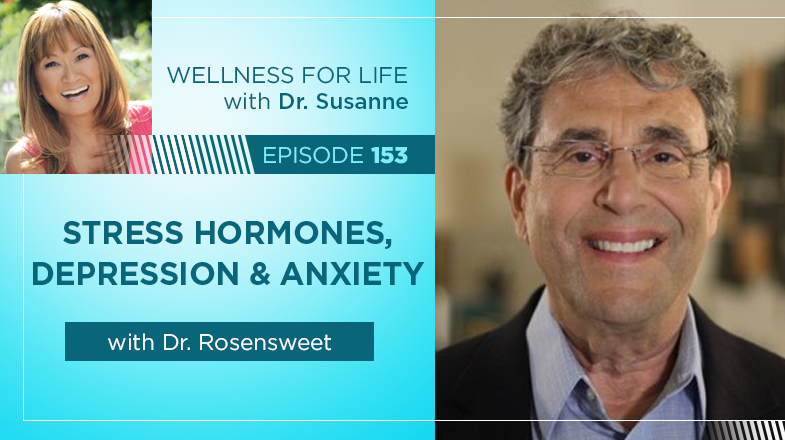
Dr. Rosensweet began practicing medicine in the 1970s and is now a thought leader in holistic health, nutrition, and patient-centered care. A nationally recognized lecturer and presenter, he’s also the author of The Menopause Method and founder of his latest health venture: I Wonder, Doctor, a free informational website that helps empower patients through carefully crafted video content. His work addresses the most common ailments Americans face today, including diabetes, menopause, and anxiety and depression, and Dr. Rosensweet has recently begun selling his own line of natural, medical-grade vitamins and supplements to help treat these ailments and improve the health of patients across the country.
I’ve been seeing more and more anxiety cases in my practice lately, so I’m creating a couple of blog posts on the topic to help you better understand anxiety and how to best treat (and prevent) it.
In this post we’ll quickly review what anxiety is and then dive into a patient story which highlights a disorder that’s linked to anxiety, one that most people have never heard of but many are suffering from.
Anxiety in one or more of its many forms affects about 18% of the US population (40 million people) each year, making it the most common mental illness plaguing us today.
And it’s no wonder, with our crazy hectic lifestyles… burning the candle at both ends… eating too much processed junk food… lacking enough quality sleep… and the list goes on. Our modern society puts us all at major risk of developing anxiety. Even young children are experiencing anxiety at record levels.
Anxiety comes in many varieties and each one has its own specific signs and symptoms. There’s Generalized Anxiety Disorder (GAD), Social Anxiety Disorder (SAD), Post Traumatic Stress Disorder (PTSD), Panic Disorder (PD), Obsessive Compulsive Disorder (OCD), and specific phobias like extreme fear of spiders or flying in an airplane.
Many cases of anxiety subside over time, especially with proper treatment. Other cases may be more of a long-term battle to manage. There are many different causes or triggers for anxiety, ranging from stress, lack of sleep, physical or emotional trauma, drug or alcohol use, nutrient deficiencies, and more.
I want to share a patient story where nutrient deficiencies triggered severe anxiety in a teenage boy, along with how we completely resolved his debilitating anxiety.
Justin was referred to me through his father, who was already a patient of mine. Justin was 17 years old and had been experiencing terrible anxiety, which resulted in him using marijuana excessively just to stay calm. Justin’s father thought that food allergies may be the cause of his anxiety, but after gathering more info during our first appointment, I suspected that Justin may have a genetic predisposition called Pyrrole Disorder, which is linked to various types of anxiety.
Pyrroles are naturally occurring molecules in our body which bond with zinc mineral and vitamin B6 molecules. Pyrroles are normally excreted to some degree in the urine, but in people with Pyrrole Disorder (also known as Pyroluria), excessive amounts of Pyrroles are excreted too rapidly, taking valuable zinc and B6 molecules with them, leading to deficiencies in these critical micronutrients.
Around 10% of the population has Pyrroles, but many are never tested for it.
I had Justin tested and found out that he (and his father, it turns out!) has this condition which meant that he was most likely deficient in zinc and B6. Problem solved! So we immediately started him on nutrient repletion therapy to get his zinc (zinc gluconate and citrate combo) and vitamin B6 (active form Pyridoxal 5 Phosphate) slowly titrating up to optimal levels and within six weeks, his anxiety totally subsided and we were able to wean him off the marijuana. He found himself much better with his focusing and completing his school homework and started exercising four times per week. His father recently let me know that Justin was so excited with his “new self” that he was now applying to colleges – something that seemed out of the question when he was riddled with severe anxiety.
If you’re suffering from an anxiety disorder and suspect that you may have Pyrrole disorder, I use and recommend DHA Laboratory for lab testing. You’ll need to order the Kryptopyrrole Quantitative Urine Test and review the results with a qualified health professional to determine your next steps in terms of supplements and lifestyle changes that you can make.
Click here to learn more about my services or to book a consultation with me to review your lab test results. Helping my patients to manage and reduce their anxiety is one of my specialties and I’d be honored to work with you or your loved one on this so that you can get back to feeling happy and relaxed as soon as possible.
In my next blog post, I’m going to share my top strategies for naturally preventing and treating anxiety disorders. Unfortunately, it’s the norm these days to be prescribed a pharmaceutical drug by your doctor if you go in complaining of an anxiety issue. But this only covers up the symptoms rather than looking for the root cause of the issue and then treating it naturally before jumping straight to pharmaceuticals.
Thankfully, there are many simple and effective ways to help ease anxiety, so stay tuned for the next blog post!
To your most vibrant life ever,
Dr. Susanne
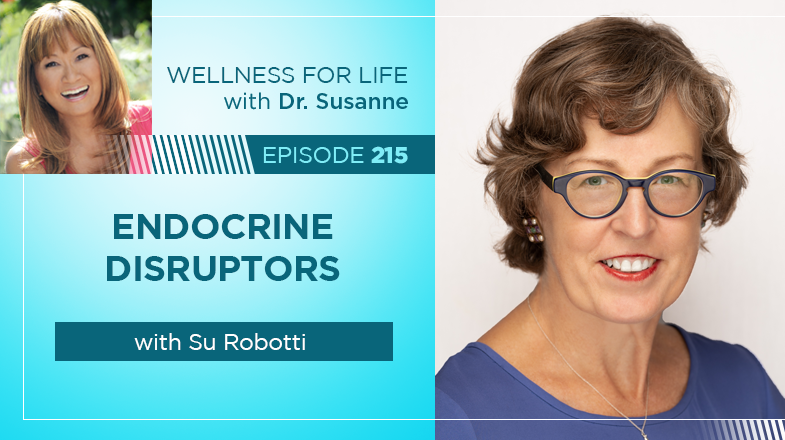
Suzanne Robotti is founder and president of MedShadow Foundation and serves on the FDA Drug Safety and Risk Management Advisory Committee as the Consumer Representative. Su is also the Executive Director for DES Action USA.
In addition to MedShadow, Robotti serves on the board of directors of New York City Community Board 7, the advisory board of Pace University’s Masters in Publishing program and is a trustee of Springfield College. Prior to founding MedShadow Foundation, she had a successful publishing industry career as founder first of Cradle Publishing and, later, Baby Publishing LLC which she later sold to Gruner+Jahr Bertelsmann.
She holds a Bachelor of Arts degree in Communications from the University of Maryland at College Park. Robotti has been honored for her extensive contributions to community service from The President’s Council on Service and Civic Participation.
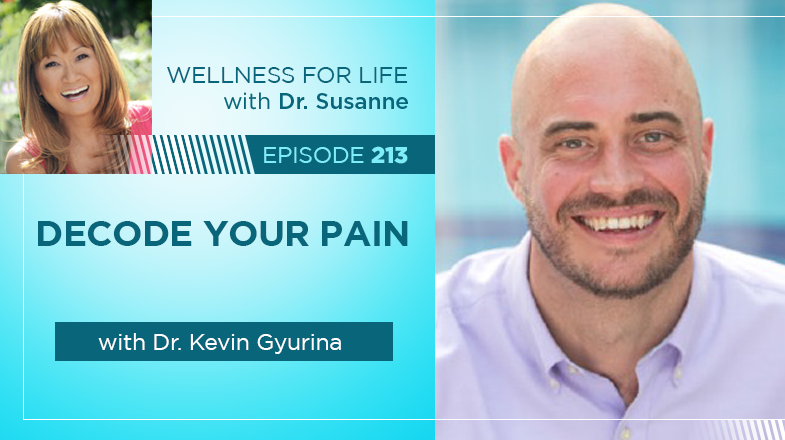
Dr. Kevin Gyurina is an advanced chiropractic doctor, certified chiropractic wellness practitioner, Usui and Karuna reiki master, nutritional specialist, quantum energy and intuitive healer. Dr. Kevin specializes in Functional Bio-analysis and Koren Specific Technique as well as natural gifts channeling guided information specific to and for the client. Dr. Kevin has travel the world in search of deeper knowledge, understanding and application of various methods and has come to a simple understanding in assisting others in realizing health, healing and happiness.
1526 14th Street, Suite 111
Santa Monica, CA 90404
Telephone: +310 315 1514
Fax: +310 315 1504
Email: help@drsusanne.com
12 Reasons to Drink More Water for Your Health |
|||||||||||
|---|---|---|---|---|---|---|---|---|---|---|---|
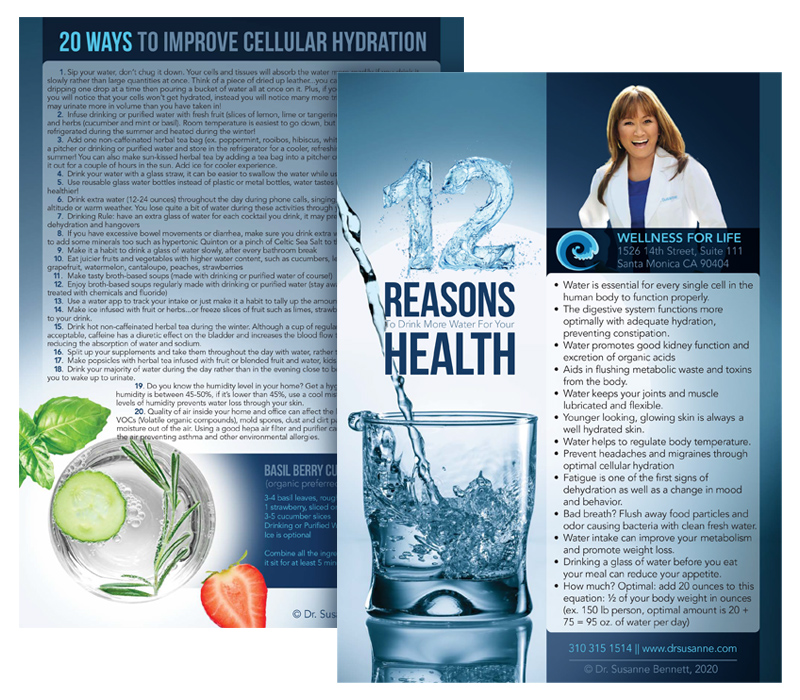 |
|
||||||||||
